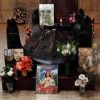Tourist route commemorates Romero
SAN SALVADOR - The Salvadoran government will open a tourist route in honour of Archbishop Oscar Romero, who was killed by death squads in March 1980.
The initiative, which will begin next year, aims to boost tourism in the country and at the same time remember the legacy of Archbishop Romero, a staunch defender of human rights and the poor who was hated by the military and oligarchs.
The tour should ensure that “his life and thought are known by foreign visitors and also by new generations of Salvadorans,” El Salvador President Mauricio Funes said from Archbishop Romero’s crypt in the Metropolitan Cathedral, where he announced the plan.
The route will include sites like the cathedral, where the archbishop denounced the injustices that occurred in this country in the late 1970s. On the steps of the cathedral, dozens of people participating in the archbishop’s funeral were massacred by government forces March 30, 1980.
It also will include the Romero Centre and Martyrs Museum, both on the campus of Central American University. They display objects belonging to the archbishop, to the Jesuits murdered in 1989 and to Jesuit Father Rutilio Grande, the first priest executed by death squads, in 1977.
The tour includes the Museum of the Word and Image and Divine Providence Hospital, where Archbishop Romero was shot dead while celebrating Mass.
The Truth Commission, created in 1993 to investigate political crimes committed during the 1980-92 civil war, established that Archbishop Romero’s assassination was carried out by a right-wing command led by Maj. Roberto D’Aubuisson, founder of Nationalist Republican Alliance. D’Aubuisson died of cancer in 1992.

